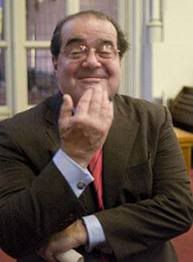For Justice Scalia, Hell is being right.
Insofar as there was confusion about what Windsor meant at the time it was decided, the lower courts across the country have now effectively settled it. A survey of publicly available opinions shows that in the eight months since Windsor, 18 court decisions have addressed an issue of equality based on sexual orientation. And in those 18 cases, equality has won every single time. In other words, not a single court has agreed with Chief Justice Roberts that Windsor is merely about state versus federal power. Instead, each has used Windsor exactly as Justice Scalia “warned”—as a powerful precedent for equality.
This hasn’t all been about marriage. Twelve decisions have addressed a substantive aspect of marriage equality since Windsor, and equality has won in all 12—with the Virginia decision now joining decisions from Kentucky, New Mexico, Oklahoma, Utah, and West Virginia, and two decisions each in Illinois, New Jersey, and Ohio. But six other cases since Windsor have addressed different aspects of discrimination based on sexual orientation, such as discrimination on juries and employment benefits, and the side of equality has won in all six of those cases as well.
The tally is even starker when you look at the number of judges who have considered the issue. Since Windsor, in these 18 decisions, 32 different judges have considered whether Windsor is merely about the relationship between the state and federal governments or whether it is about equality. And all 32 of them have found for equality. In other words, 32 accomplished, intelligent lawyers, appointed by Democrats and Republicans, whose job it is to read precedent, have ruled for equality. Not a single one has disagreed.

No comments:
Post a Comment